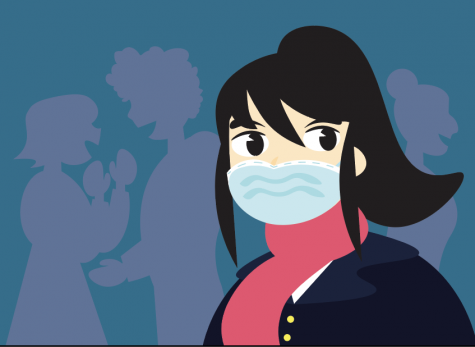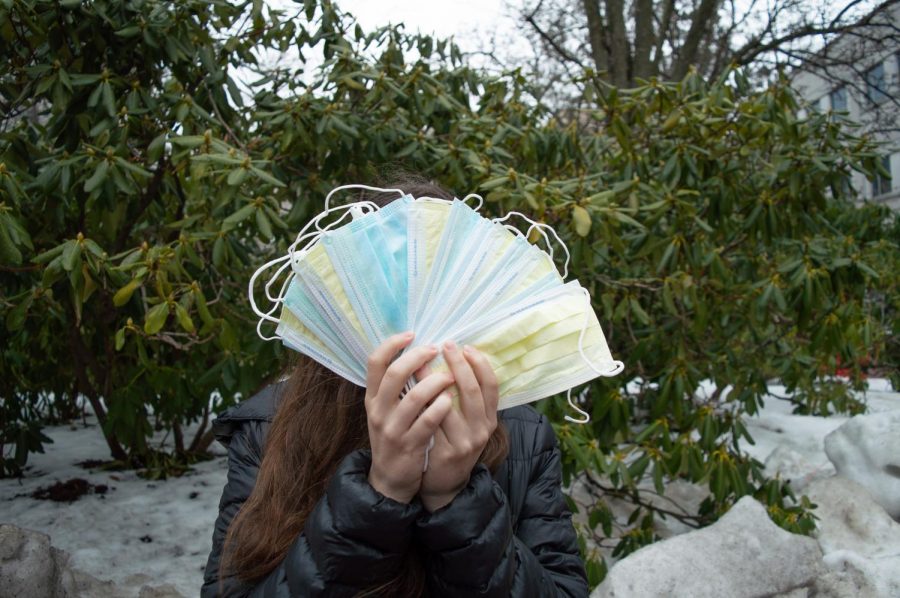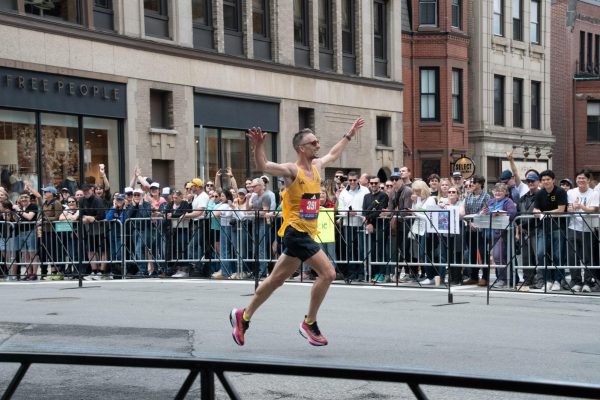Op-ed: The pandemic will eventually go away, but face masks shouldn’t
Face masks have significantly slowed the spread of COVID-19.
February 16, 2021

Face masks have become an integral part of pandemic life. Face masks are key to preventing the transmission of the virus when worn correctly over the face and mouth.
The newly inaugurated President Joe Biden plans to administer 100 million vaccinations in his first 100 days in office. While some health experts claim that this goal falls short of what is necessary to quickly thwart a continuation of the pandemic, it is nonetheless a step in the right direction. It is unclear when the world will finally see a coronavirus-free day, but, with an established vaccination plan, there is hope that it will eventually arrive.
Once the raging pandemic ceases to influence the actions of our everyday lives, will practices like excessive sanitation and mask-wearing cease, too? I believe they shouldn’t: especially face masks.
While western countries began mask wearing at the outbreak of COVID-19, Asian countries sported masks years before the pandemic. For instance, in Japan it is a cultural courtesy to wear masks when you are sick to protect others; and some Japanese women customarily wear masks to conceal their faces when they aren’t wearing make-up. There are several personal and public-health related reasons to continue wearing a face mask after the pandemic ends.
While face masks rose to popularity in western countries to prevent the transmission of the coronavirus, the eventual end of the pandemic will not decrease the spread of the common cold or flu. According to reports from the Centers for Disease Control and Prevention, or CDC, the United States experienced an unusually mild flu season during 2020. The drop in flu cases can be attributed to coronavirus-related efforts to protect public health like mask wearing.
In many western cultures, and especially in the United States, life revolves around work and education. Reflecting this stereotype, we are more likely to attend work or school even when we are feeling under the weather. This is not surprising considering the fact that the U.S. does not have paid sick leave. If people continue to wear face masks after the pandemic ends, it could reduce the spread of the common cold and flu to a level as low as the numbers we saw in 2020, thus enabling Americans to stay working for longer periods of time. Wearing a face mask, especially when feeling sick, is the courteous thing to do for fellow classmates or colleagues.
Since face masks protect others when you’re sick, they also serve as protection for you when others around you are unwell. Masks should be worn when traveling into dense areas like cities and on public transportation. The only way to make these types of places more safe is by socially normalizing mask-wearing beyond the confines of public health crises. I know I’ll be wearing my mask the next time I take a trip to New York City: a metropolis of nearly eight and a half million people that could potentially be sick!
Additionally, face masks can also protect you from things other than viruses. It is no secret that Boston is home to brutally cold winters. During these frigid months, face masks are a great way to keep warm and concealed. Face masks can function the same way scarfs, hats and gloves do.
Not only can masks function as a winter-time accessory, they can serve as a general fashion accessory, too. The pandemic facilitated the rise of a fashion-mask industry — masks can now be found in almost any store. With all the unique styles, patterns and designs that masks can come in, they are the perfect way to pull together an outfit. For all the fashionistas out there, the face mask might just become your next best friend!
Face masks are currently a necessity to sustain public health in the face of the pandemic. However, they serve not only as an essential way to protect people from illness, but also as a way to feel more comfortable and fashionable. Such a dynamic product deserves a place in our culture beyond the pandemic.
Katie Mogg is a first-year journalism major. She can be reached at [email protected].


















